Konferencja zamykająca III edycję Funduszy Norweskich i EOG w Polsce | PL
Environmental protection, scientific research, local development, business and innovation, culture, justice, home affairs, education, health, and civil society – these are the areas that benefited from the EEA and Norway Grants 2014-2021 in Poland. Beneficiaries implemented 1800 projects. As many as 683 projects were carried out in partnership with companies, institutions, and research units from Iceland, Liechtenstein, and Norway. All of this was discussed during the closing conference of the third edition of the EEA and Norway Grants in Poland, which took place on December 3rd at the Grand Theatre – National Opera in Warsaw.
In 2024, several significant events for the EEA and Norway Grants coincided:
- the completion of the third edition of the EEA and Norway Grants,
- preparations for the fourth edition,
- the 20th anniversary of these financial mechanisms and Poland's membership in the European Union.
"The third edition of the EEA and Norway Grants is a success story achieved despite numerous challenges. With the largest budget among the 15 beneficiary countries, amounting to approximately 3.5 billion PLN (809.3 million EUR), we have implemented nearly 1800 projects. Among other achievements, we have increased the competitiveness of Polish enterprises and improved the quality of life for residents of medium-sized and small towns. Support for researchers and educational institutions has contributed to the development of scientific research, modernization of educational offerings, and strengthening international cooperation in this field" - Deputy Minister of Development Funds and Regional Policy Konrad Wojnarowski said this during the opening of the conference
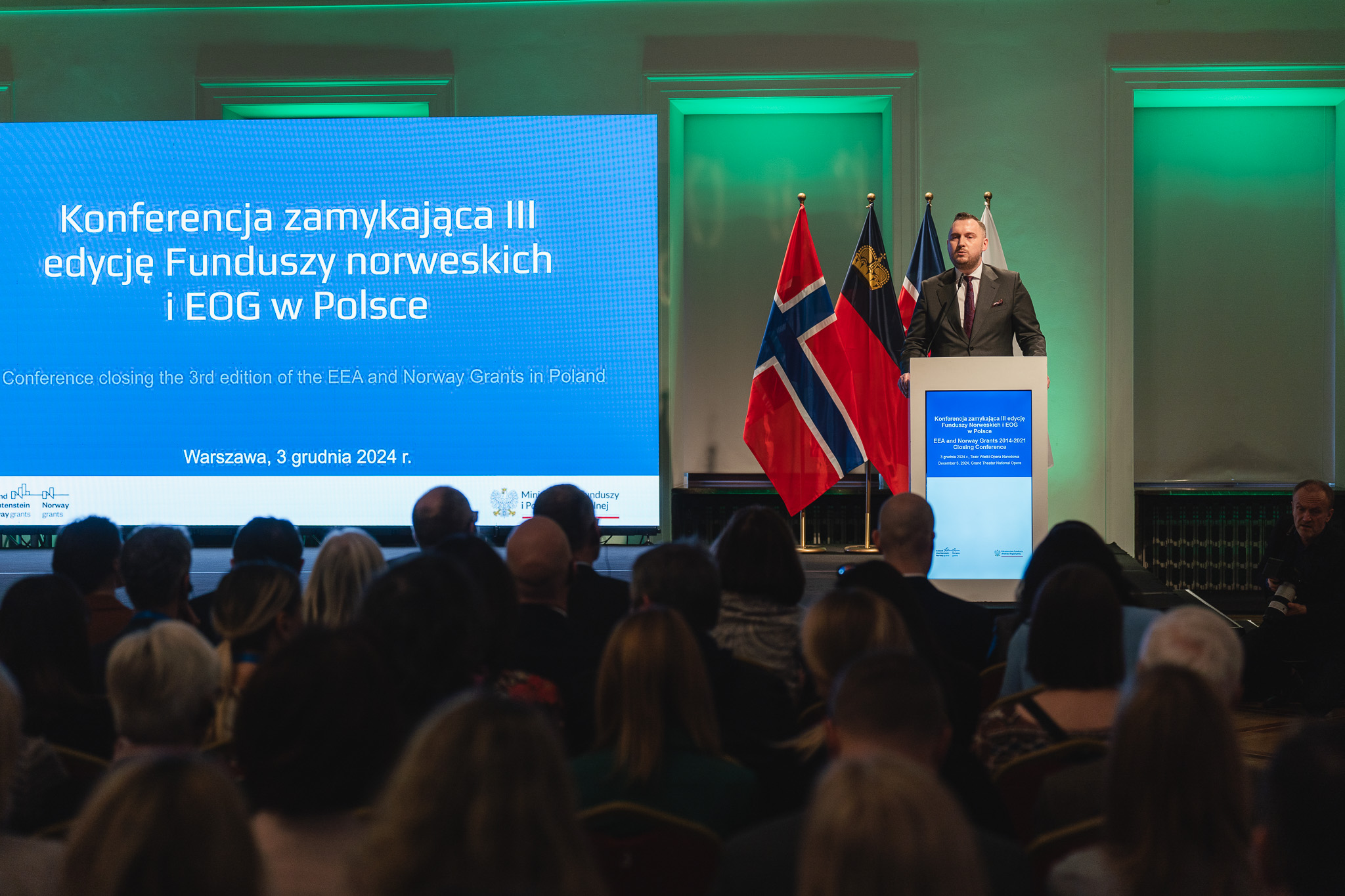 Speech by the Deputy Minister of Development Funds and Regional Policy, Konrad Wojnarowski
Speech by the Deputy Minister of Development Funds and Regional Policy, Konrad Wojnarowski
"Norway’s support through the EEA Norway Grants is one of our key investments in Europe’s future. It is a tangible expression of our belief in cohesion, social justice and the power of civil society. In Poland we have for twenty years worked together to reduce social and economic disparities in Europe. Thousands of projects have been carried out to building capacities and to fostering lasting Polish-Norwegian relations, partnerships and friendships" - said Maria Varteressian, Secretary of State at the Norwegian Ministry of Foreign Affairs
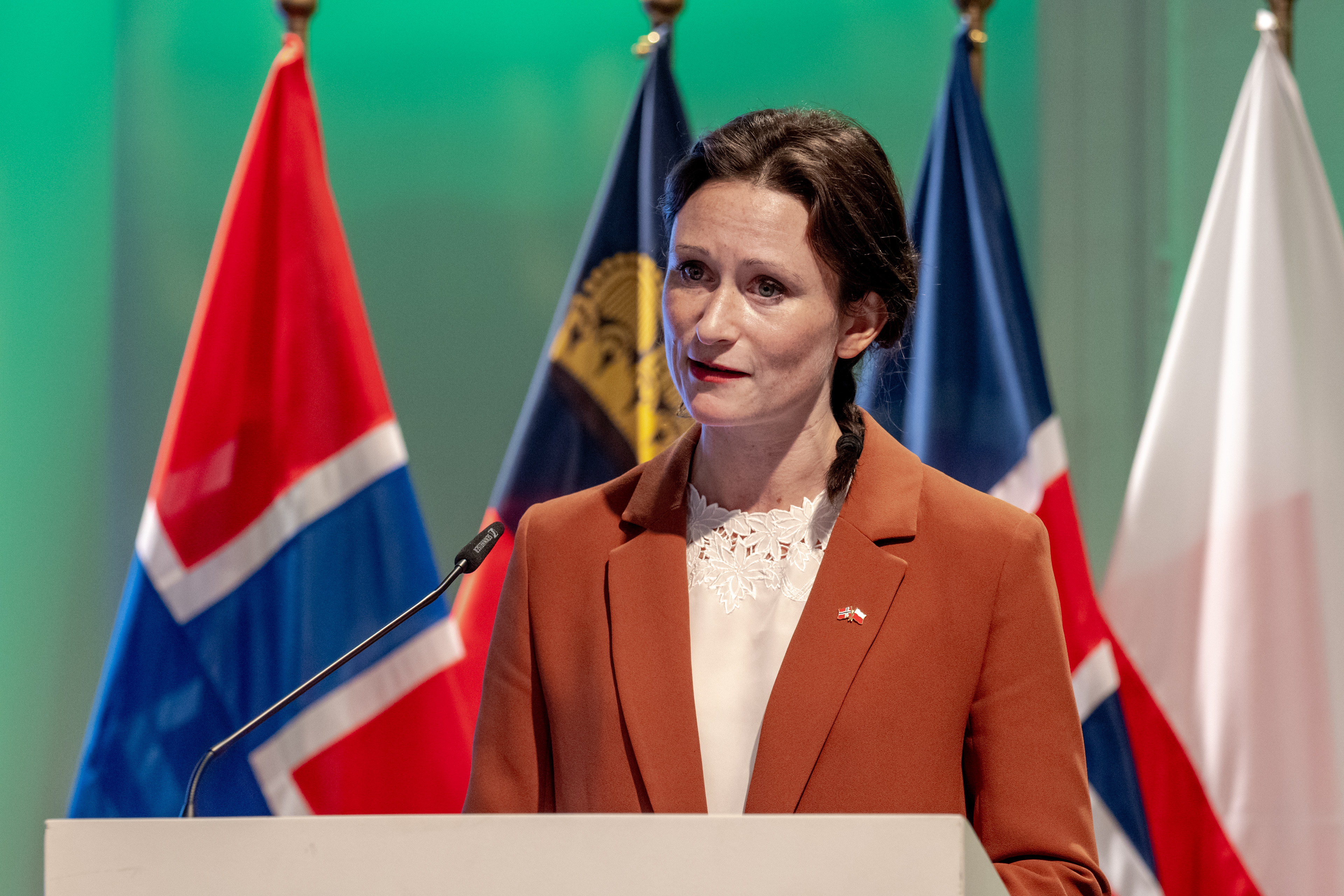 Speech by Maria Varteressian, Secretary of State at the Ministry of Foreign Affairs of Norway
Speech by Maria Varteressian, Secretary of State at the Ministry of Foreign Affairs of Norway
"Iceland places a high value on its close partnership with Norway and Liechtenstein, as together we strive to provide vital resources and tools to strengthen cooperation with Poland through the EEA Grants. These grants, along with the framework for bilateral cooperation between Poland and Iceland, have paved the way for remarkable achievements" - said Friðrik Jónsson, Ambassador of Iceland to Poland
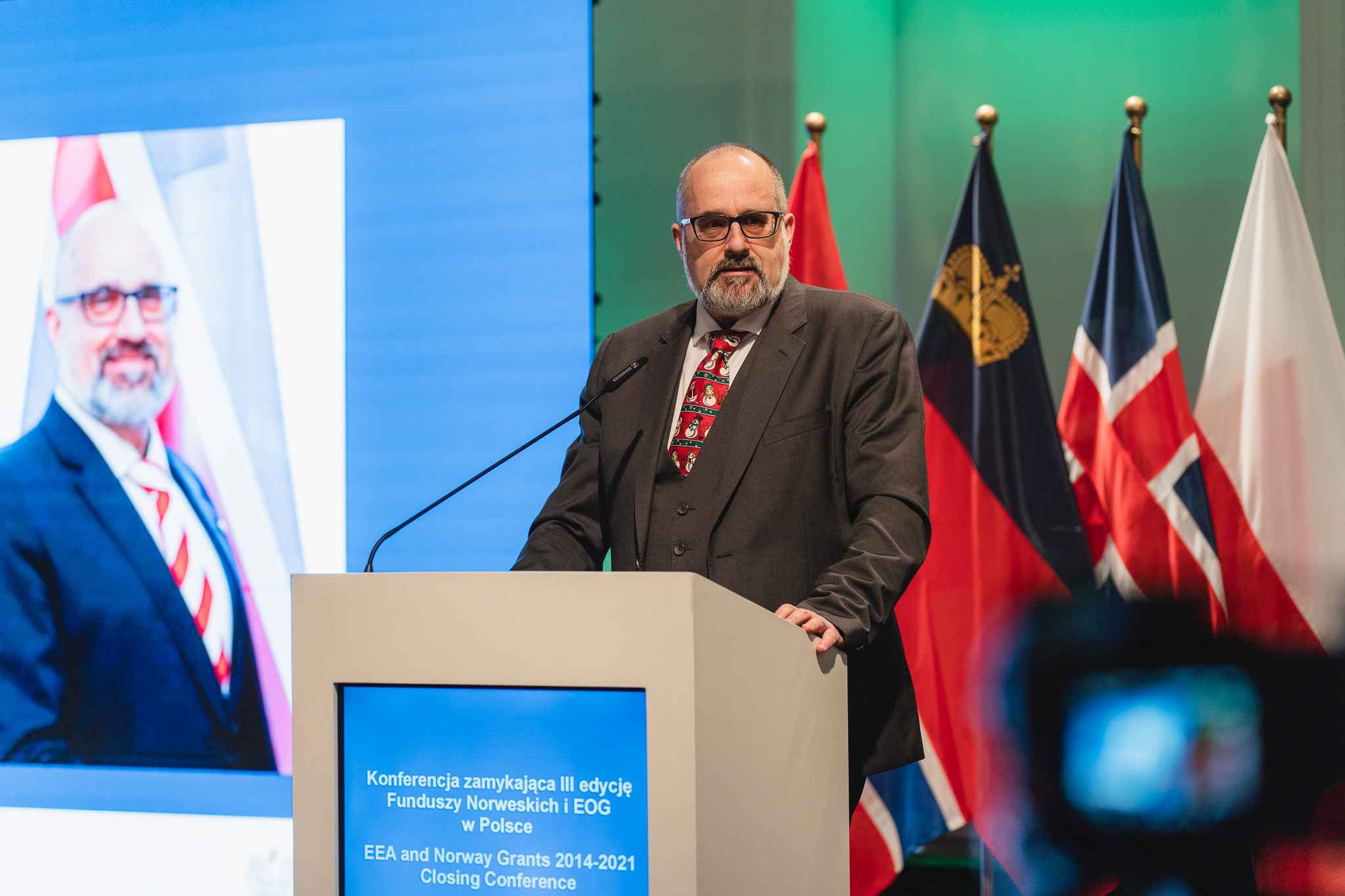 Speech by Friðrik Jónsson, Iceland's ambassador to Poland
Speech by Friðrik Jónsson, Iceland's ambassador to Poland
"The EEA Grants underline Liechtenstein’s strong commitment to the Single Market, which, as late Jacques Delors always insisted, goes hand in hand with European solidarity and fostering social and economic cohesion within the European Economic Area. For more than 20 years many meaningful projects could be realized that bring Iceland, Liechtenstein, Norway and Poland closer together with the overall goal to reduce economic and social disparities within the EEA and to strengthen our bilateral ties" - said Alina Brunhart, First Secretary at the Liechtenstein Mission to the EU.
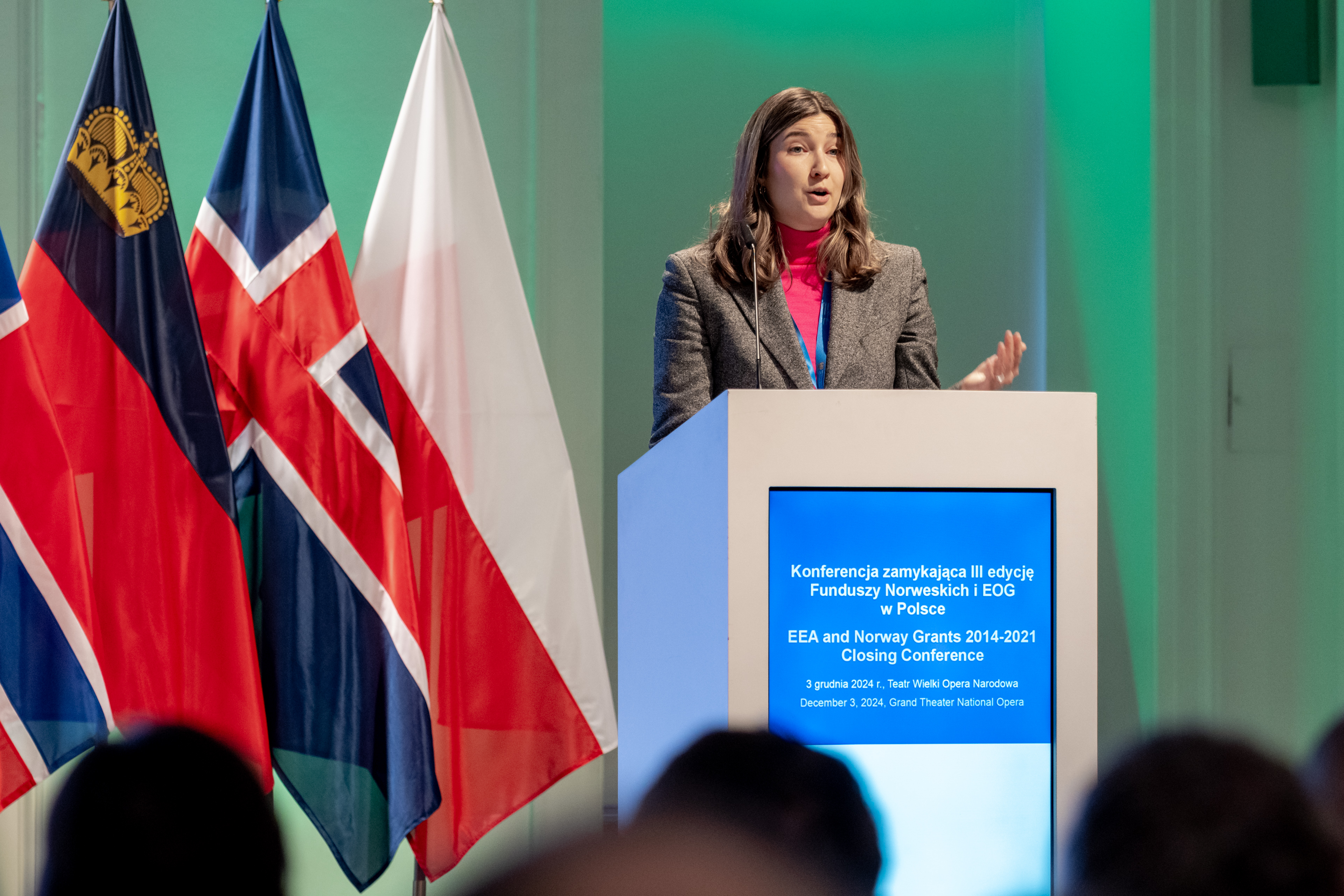 Speech by Alina Brunhart, First Secretary at the Liechtenstein Representation in Brussels
Speech by Alina Brunhart, First Secretary at the Liechtenstein Representation in Brussels
From scientific research to social dialogue
Within the third edition of the EEA and Norway Grants, 50 calls for proposals were announced across 13 programmes. Predefined projects, whose implementation was outlined in the programme documents, were also implemented.
Under these 13 programmes, projects were carried out in areas such as research, environmental protection, local development, entrepreneurship and innovation, culture, health, civil society, justice, education, internal affairs, bilateral cooperation, social dialogue, and decent work.
 A presentation summarizing the third edition of the EEA and Norway Grants in Poland is presented by Maciej Aulak, director of the Department of Assistance Programs at the Ministry of Development Funds and Regional Policy
A presentation summarizing the third edition of the EEA and Norway Grants in Poland is presented by Maciej Aulak, director of the Department of Assistance Programs at the Ministry of Development Funds and Regional Policy
"These mechanisms have allowed us not only to reduce socioeconomic disparities but also to build strong relationships with Norway, Iceland, and Liechtenstein. We are like pieces of a puzzle - aach element of our cooperation creates a coherent and effective whole" - says Deputy Minister Konrad Wojnarowski.
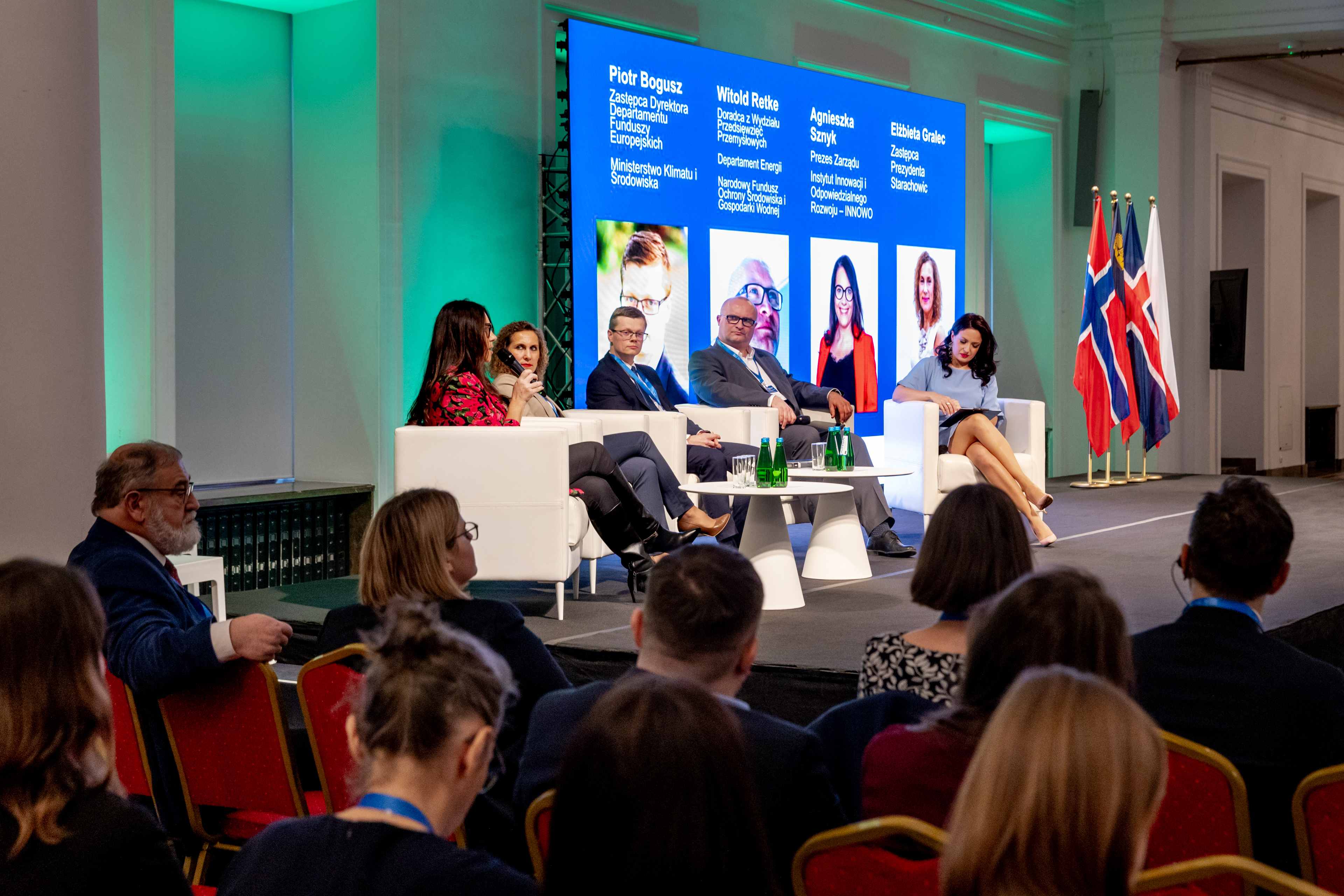 "Green" discussion panel. From the left: Agnieszka Sznyk (Institute of Innovation and Responsible Development), Elżbieta Gralec (deputy mayor of Starachowice), Piotr Bogusz (Ministry of Climate and Environment), Witold Retke (National Fund for Environmental Protection and Water Management), Anna Butrym (moderator)
"Green" discussion panel. From the left: Agnieszka Sznyk (Institute of Innovation and Responsible Development), Elżbieta Gralec (deputy mayor of Starachowice), Piotr Bogusz (Ministry of Climate and Environment), Witold Retke (National Fund for Environmental Protection and Water Management), Anna Butrym (moderator)
Bilateral cooperation
Bilateral cooperation, i.e., between Poland and Iceland, Liechtenstein, and Norway, was one of the key elements of this edition. 683 projects were implemented in partnership with entities (e.g., companies, universities, state and local government institutions) from Iceland, Liechtenstein, and Norway.
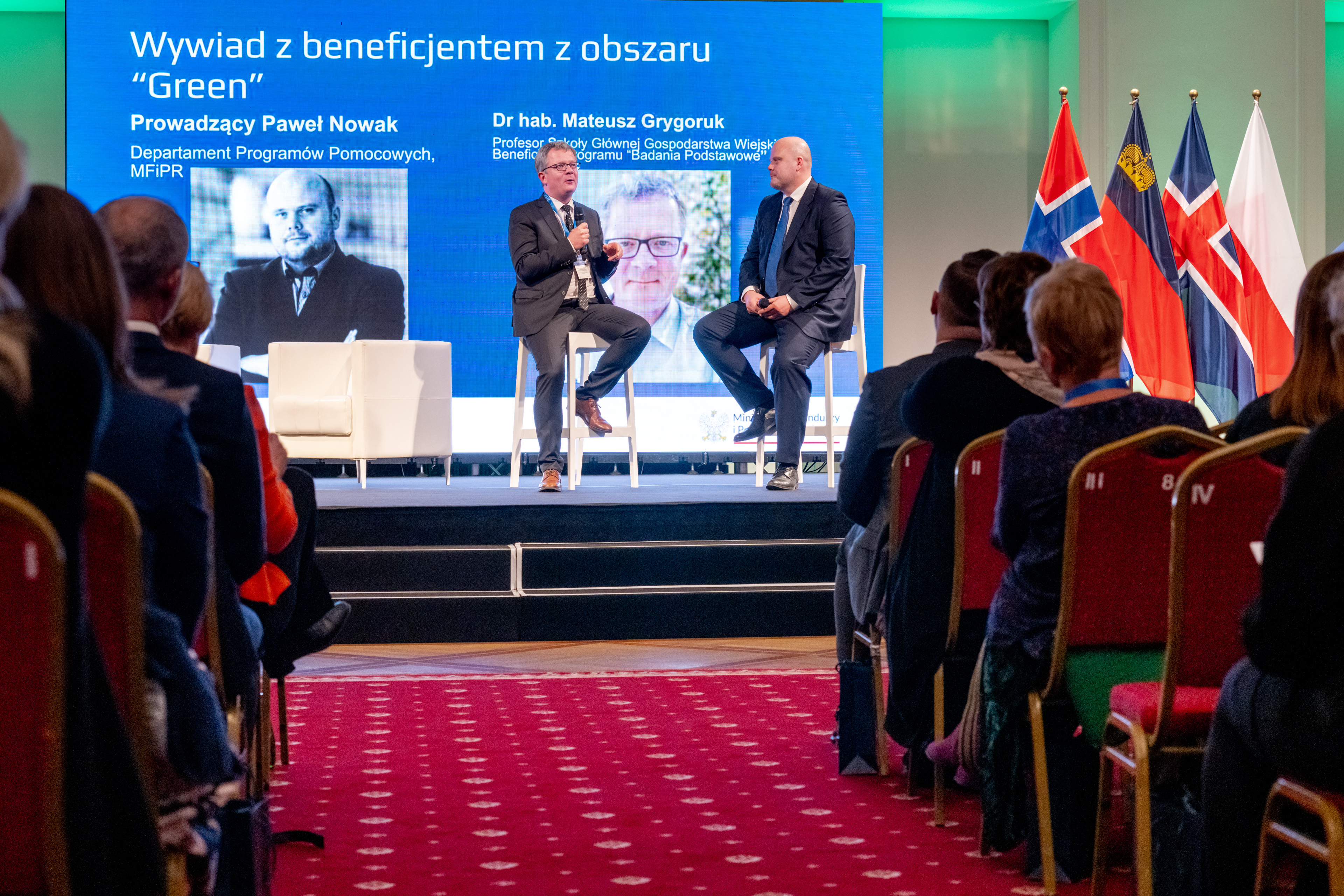 On-stage interview with Professor Mateusz Grygoruk from Warsaw Univeristy of Life Sciences about a research project on wetlands
On-stage interview with Professor Mateusz Grygoruk from Warsaw Univeristy of Life Sciences about a research project on wetlands
It wasn't easy
EEA and Norway Grants beneficiaries and implementing institutions have had to face a number of challenges, including the COVID-19 pandemic, the war in Ukraine, inflation, and disrupted supply chains.
Thanks to a flexible and rapid response to these needs, EEA and Norway Grants have been used to support hospitals, aid for refugees, and education and medical projects. In response to the floods in southern Poland, the funds were also allocated to mitigate their effects. Approximately 8.5 million PLN was allocated to assist affected families and ensure access to healthcare in the region.
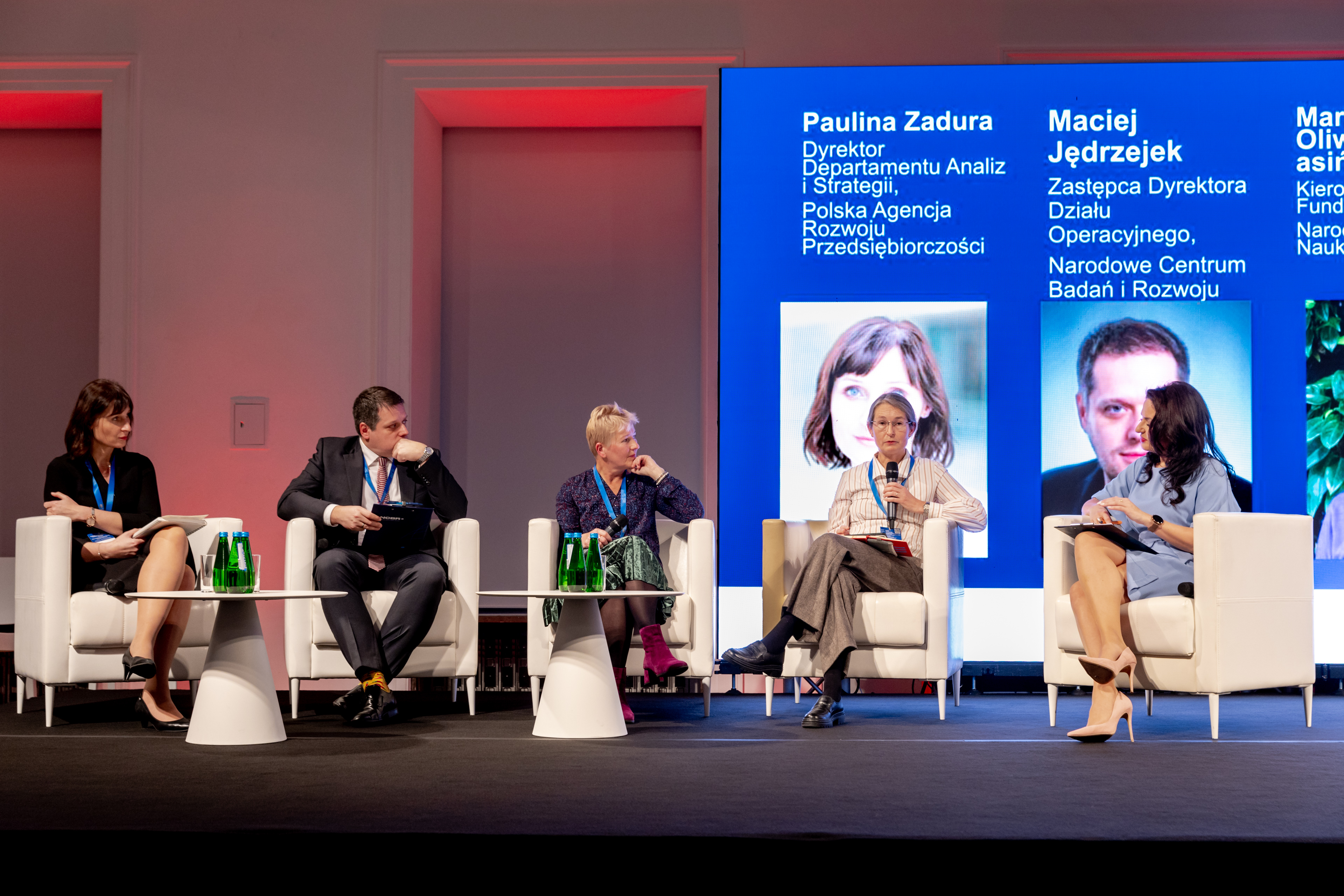 "Competitive" discussion panel. From the left: Paulina Zadura (Polish Agency for Enterprise Development ), Maciej Jędrzejek (National Center for Research and Development), Marzena Oliwkiewicz-Miklasińska (National Science Center ), Aleksandra W. Haugstad (Research Council of Norway), Anna Butrym (moderator)
"Competitive" discussion panel. From the left: Paulina Zadura (Polish Agency for Enterprise Development ), Maciej Jędrzejek (National Center for Research and Development), Marzena Oliwkiewicz-Miklasińska (National Science Center ), Aleksandra W. Haugstad (Research Council of Norway), Anna Butrym (moderator)
Fourth edition of Grants
2024 and 2025 are years of preparation for the new framework of the EEA and Norway Grants.
Negotiations between the European Commission and Iceland, Liechtenstein, and Norway concluded in December 2023. The Memorandum of Understanding – an international agreement between Poland and these three countries – for the fourth edition is expected to be signed in the first half of 2025.
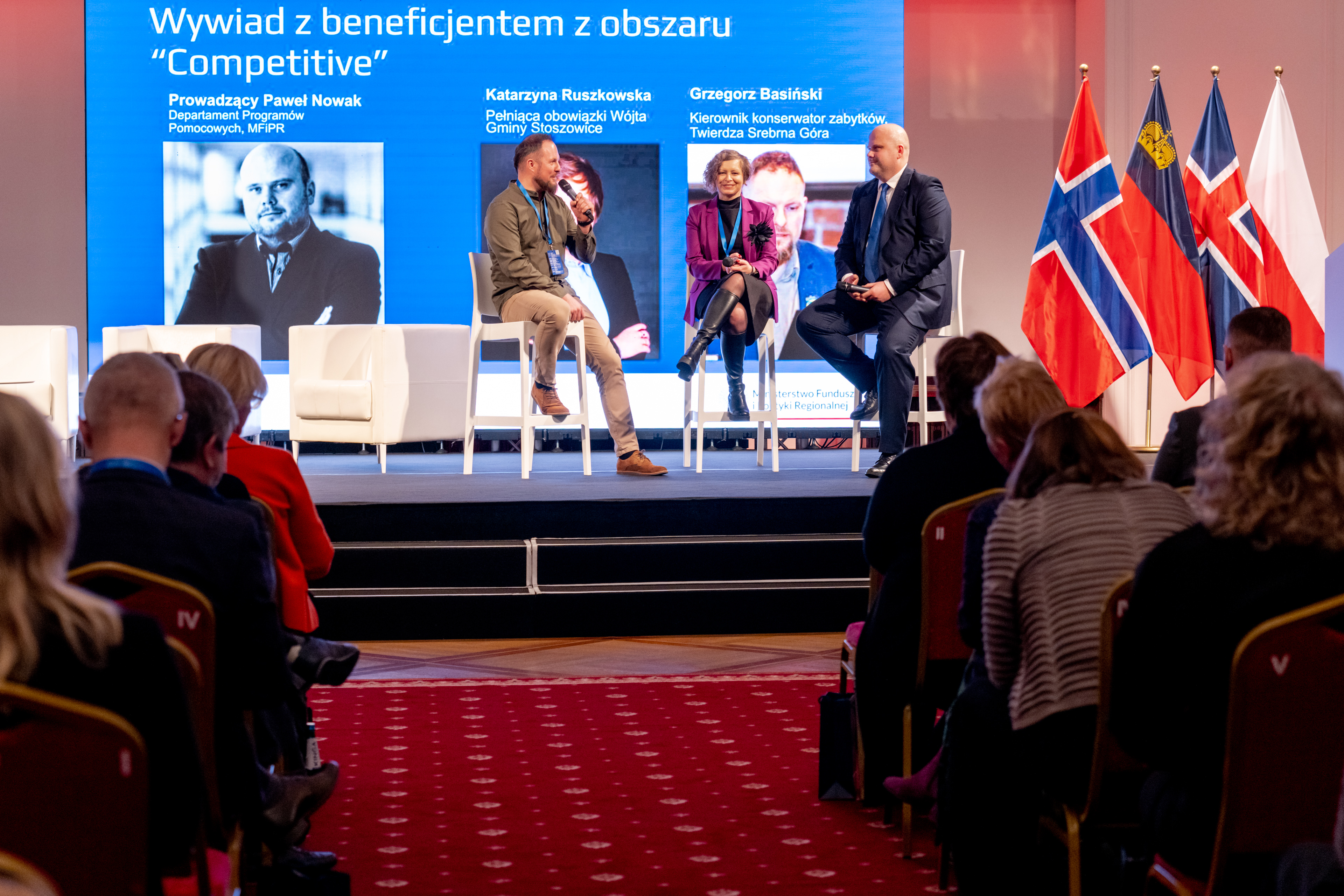 The interview with Katarzyna Ruszkowska, the mayor of the Stoszowice commune, and Grzegorz Basiński, conservator of monuments at the Srebrna Góra Fortress
The interview with Katarzyna Ruszkowska, the mayor of the Stoszowice commune, and Grzegorz Basiński, conservator of monuments at the Srebrna Góra Fortress
About EEA and Norway Grants
The EEA and Norway Grants are a form of non-refundable foreign aid provided by Iceland, Norway, and Liechtenstein to several Central and Eastern European countries, as well as the Baltic states. The main goal of these grants is to reduce economic and social disparities and strengthen bilateral relations between the donor countries and the recipient country.
Chcesz zgłębić temat?
Zobacz, co działo się na naszej konferencji podsumowującej trzecią edycję Funduszy Norweskich i EOG:
- presentation about the EEA and Norway Grants 2014-2021 in Poland (PDF 33 MB)
- agenda wydarzenia (PDF 110 KB)
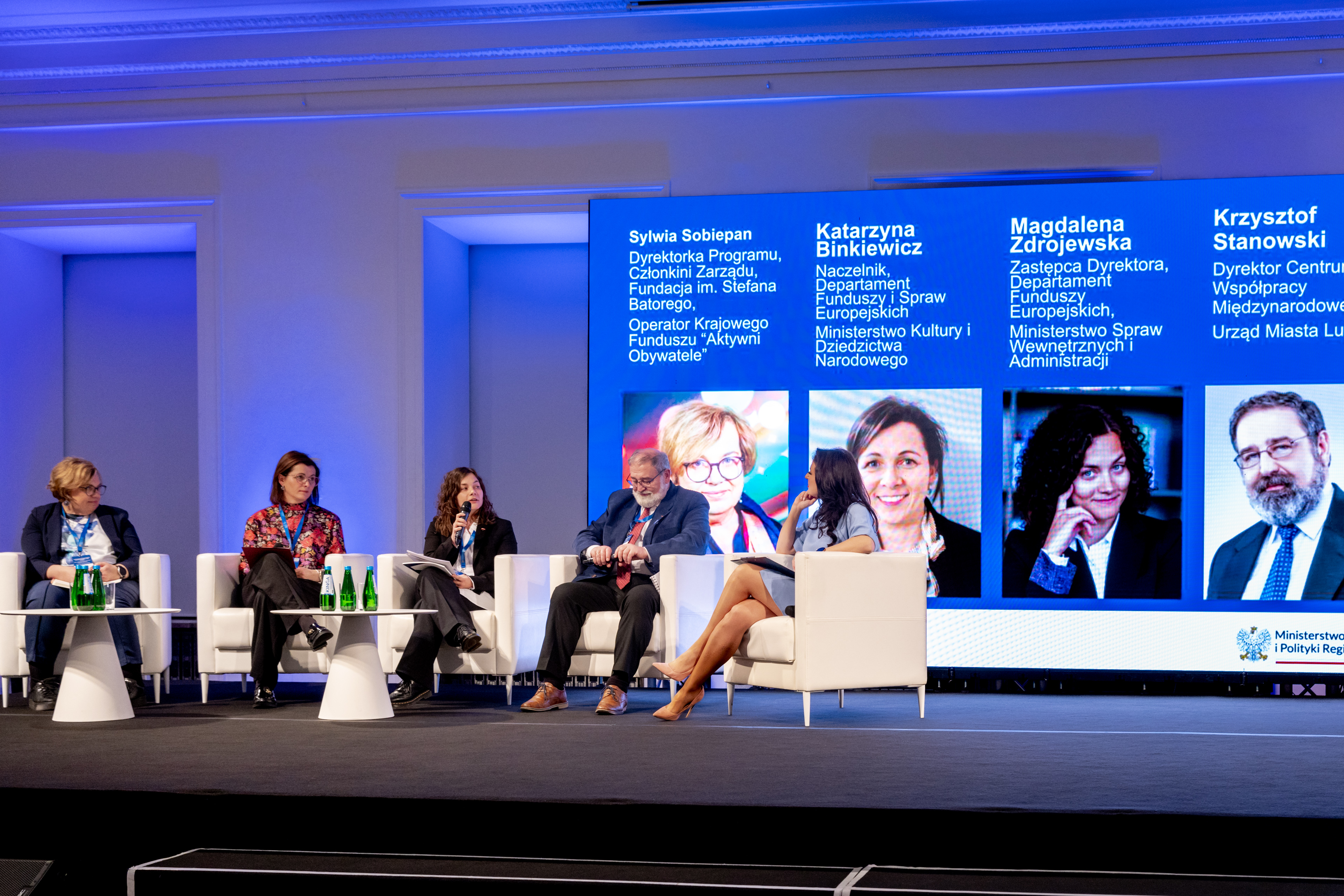 "Inclusive" discussion panel. From the left: Sylwia Sobiepan (Active Citizens Fund - National, Stefan Batory Foundation), Katarzyna Binkiewicz (Ministry of Culture and National Heritage), Magdalena Zdrojewska (Ministry of the Interior and Administration), Krzysztof Stanowski (Lublin City Hall), Anna Butrym (moderator)
"Inclusive" discussion panel. From the left: Sylwia Sobiepan (Active Citizens Fund - National, Stefan Batory Foundation), Katarzyna Binkiewicz (Ministry of Culture and National Heritage), Magdalena Zdrojewska (Ministry of the Interior and Administration), Krzysztof Stanowski (Lublin City Hall), Anna Butrym (moderator)
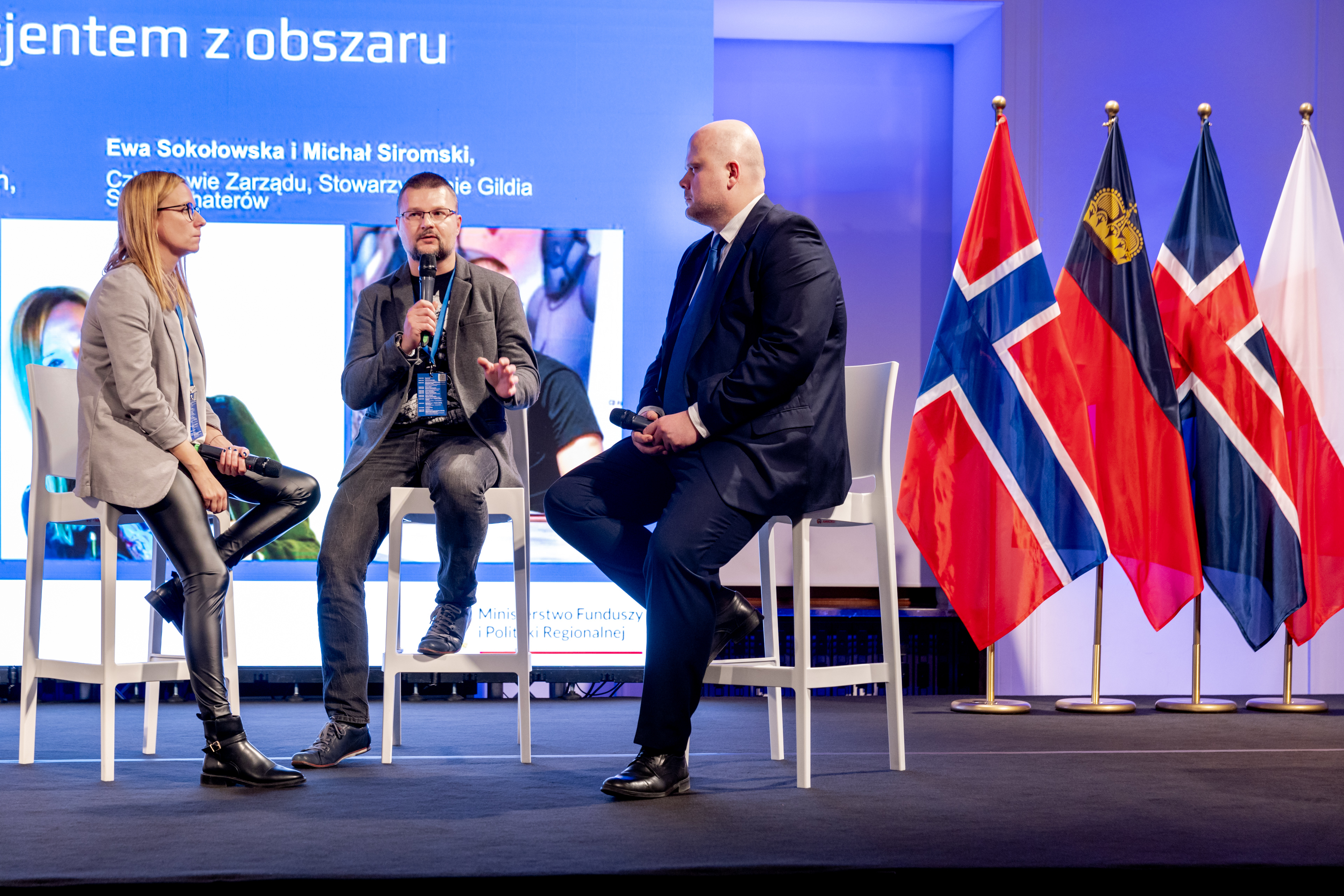 Interview with Ewa Sokołowska and Michał Siromski from the Guild of Superheroes Association, who helped women experiencing domestic violence in Gniewków
Interview with Ewa Sokołowska and Michał Siromski from the Guild of Superheroes Association, who helped women experiencing domestic violence in Gniewków
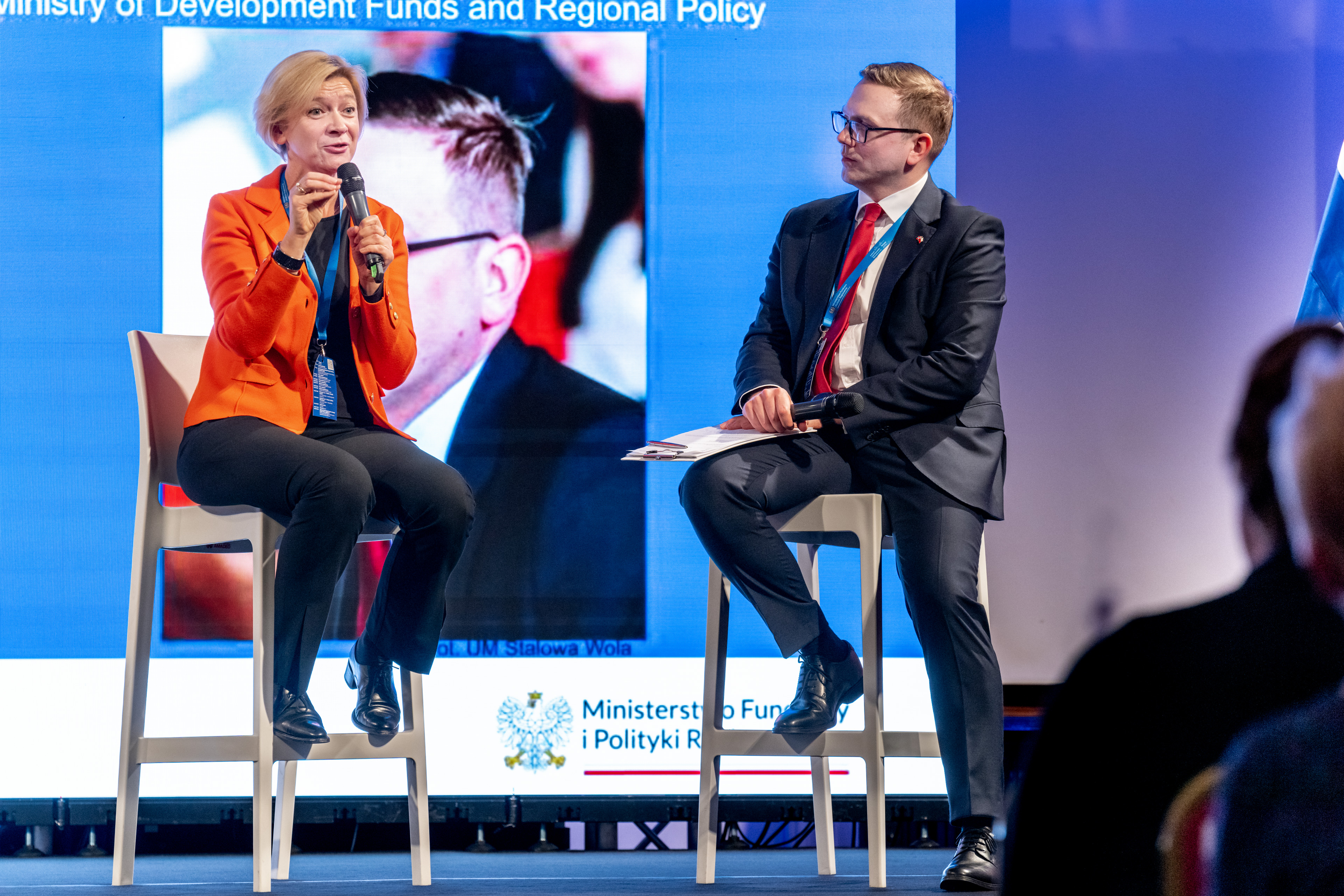 1 on 1 conversation between Elita Cakule from the Norwegian Association of Local and Regional Authorities and Kamil Wieder from the Local Government Support Unit, Department of Assistance Programmes of the Ministry of Development Funds and Regional Policy
1 on 1 conversation between Elita Cakule from the Norwegian Association of Local and Regional Authorities and Kamil Wieder from the Local Government Support Unit, Department of Assistance Programmes of the Ministry of Development Funds and Regional Policy
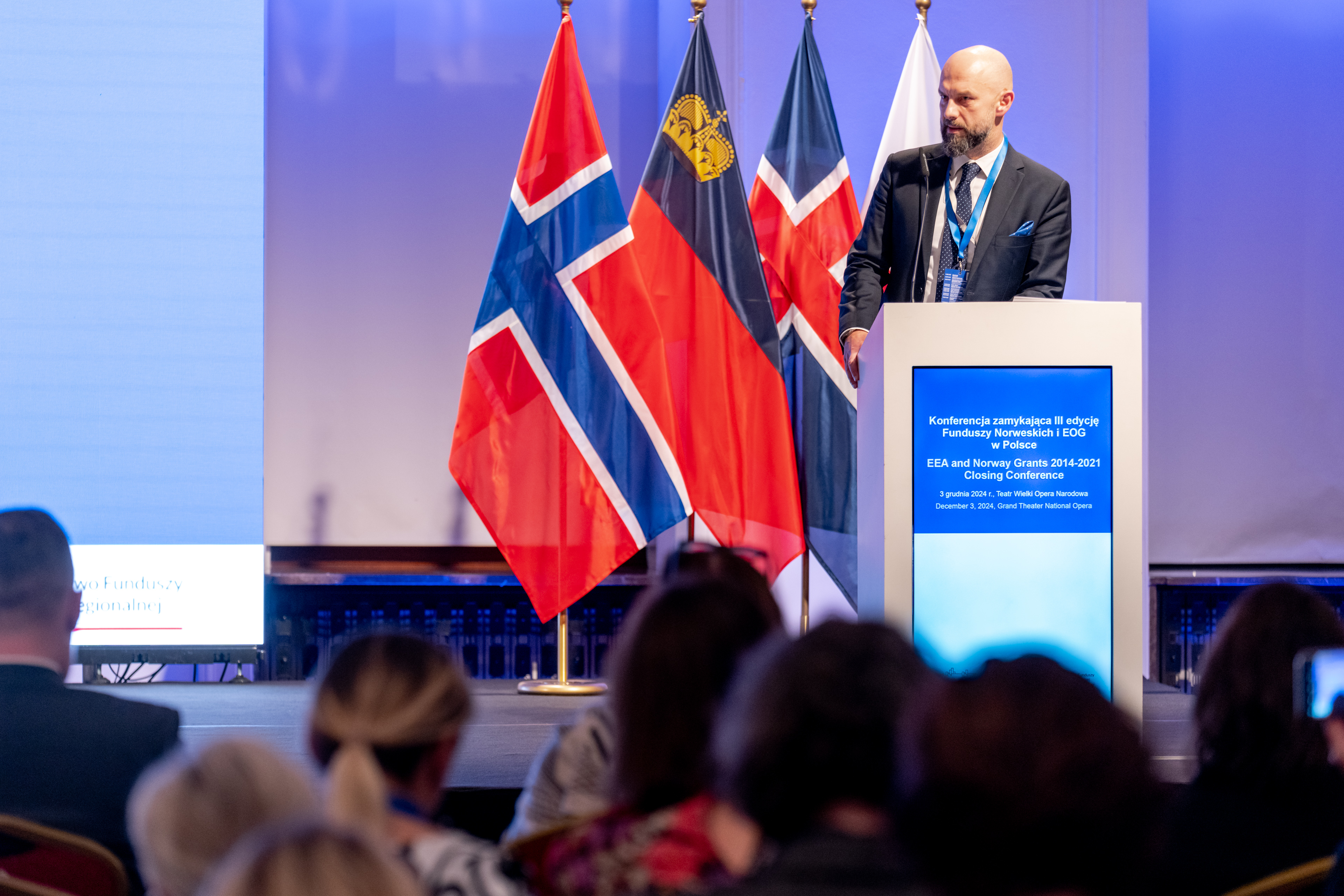 Tomasz Gajewski, deputy director of the Department of Funds and Free Legal Aid at the Ministry of Justice, talks about bilateral cooperation under the Justice Programme
Tomasz Gajewski, deputy director of the Department of Funds and Free Legal Aid at the Ministry of Justice, talks about bilateral cooperation under the Justice Programme
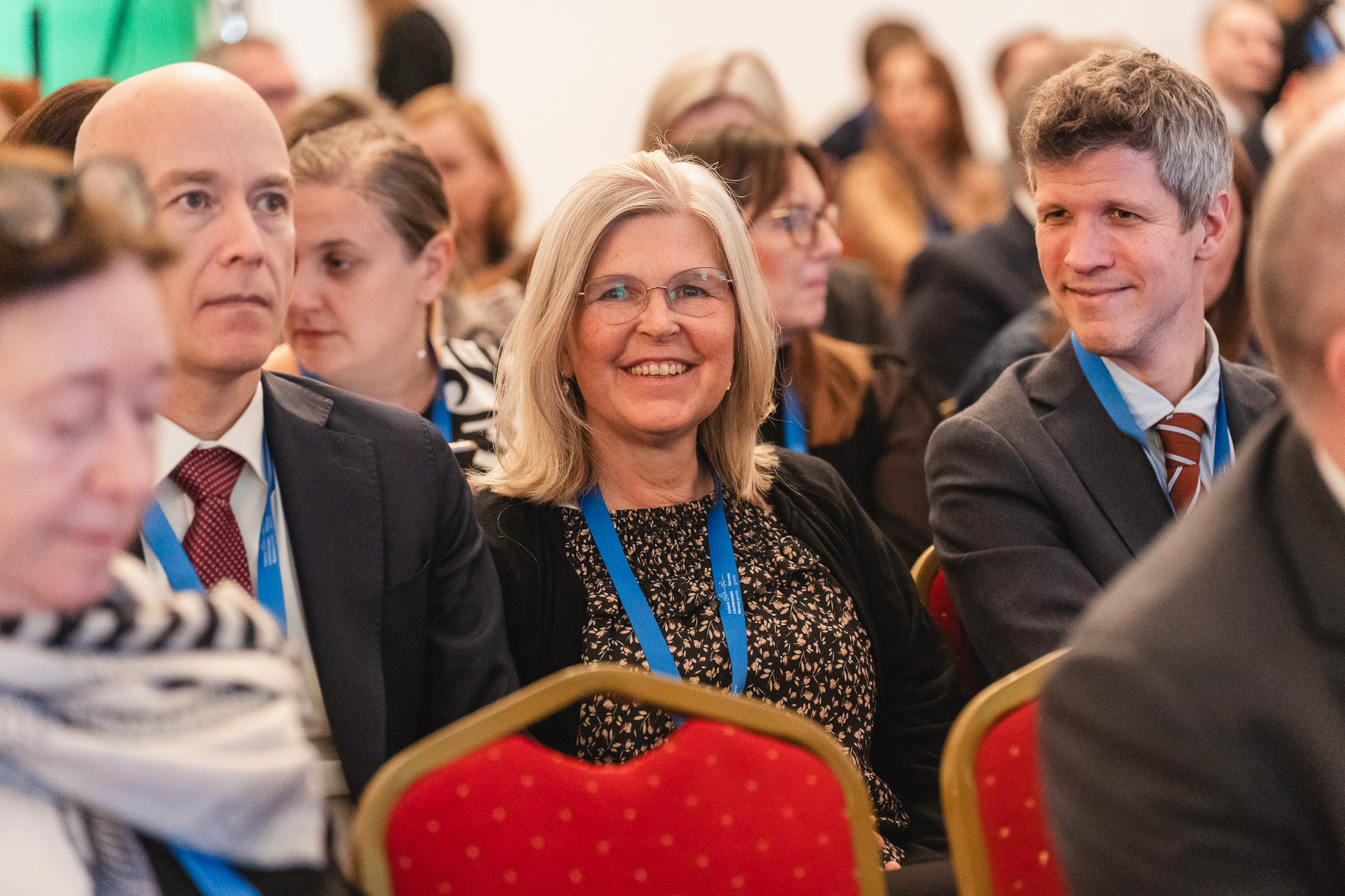 Ragna Fidjestøl, Managing Director of the Financial Mechanisms Office in Brussels
Ragna Fidjestøl, Managing Director of the Financial Mechanisms Office in Brussels
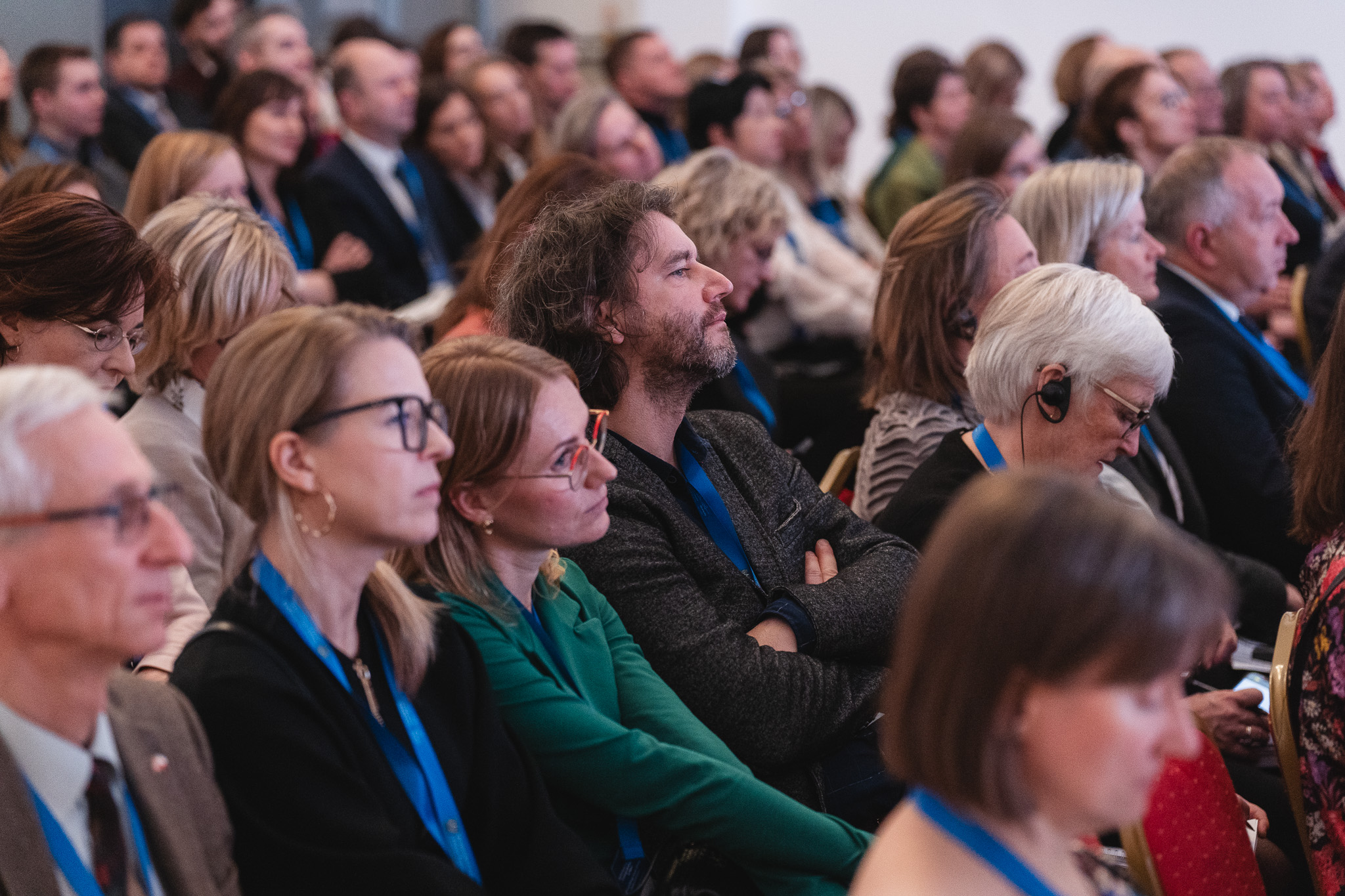 Conference participants
Conference participants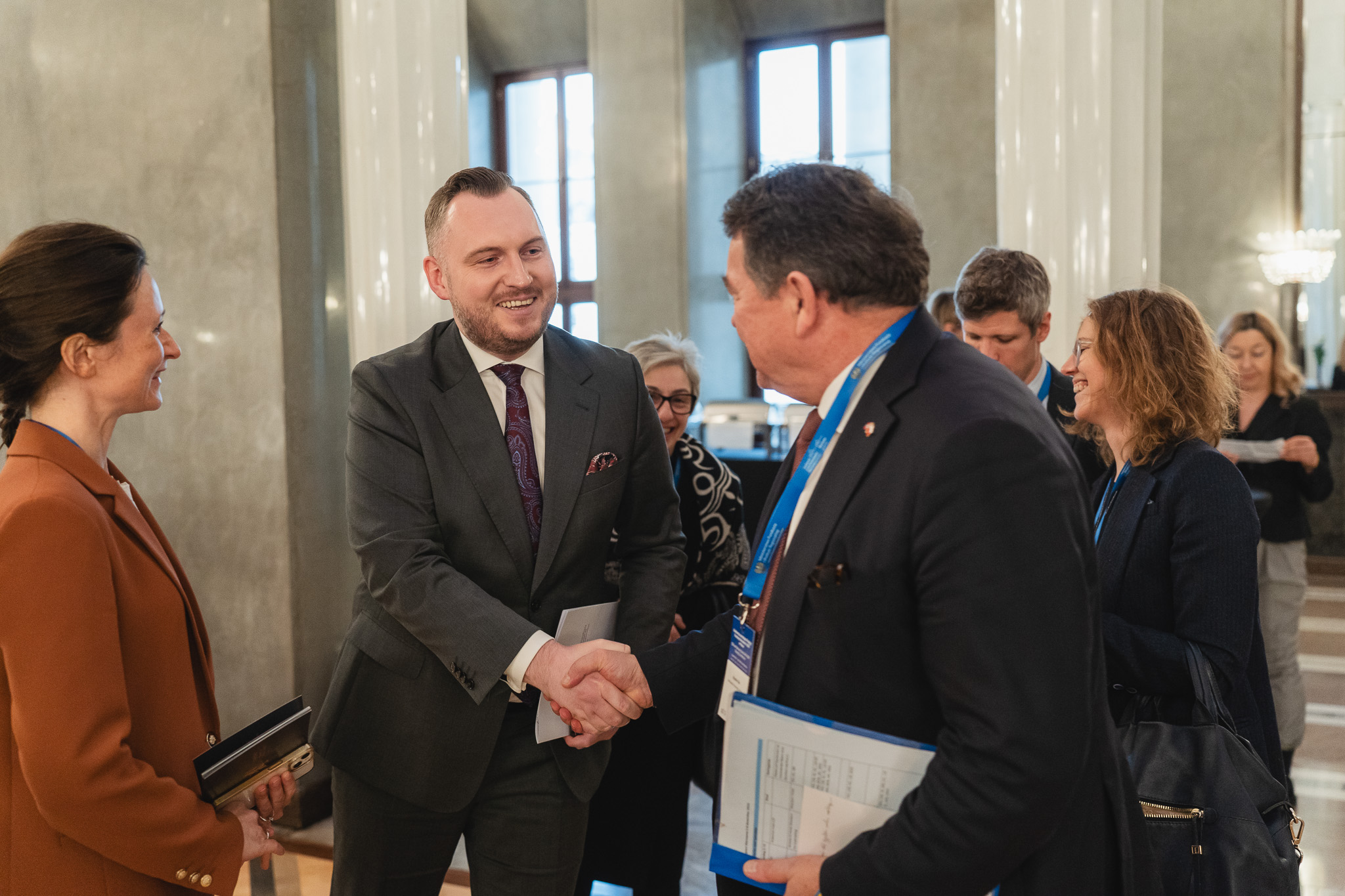 Welcome by Deputy Minister Konrad Wojnarowski with the Norwegian ambassador to Poland, Øystein Bø. On the left, Maria Varteressian, Secretary of State at the Norwegian Ministry of Foreign Affairs
Welcome by Deputy Minister Konrad Wojnarowski with the Norwegian ambassador to Poland, Øystein Bø. On the left, Maria Varteressian, Secretary of State at the Norwegian Ministry of Foreign Affairs

